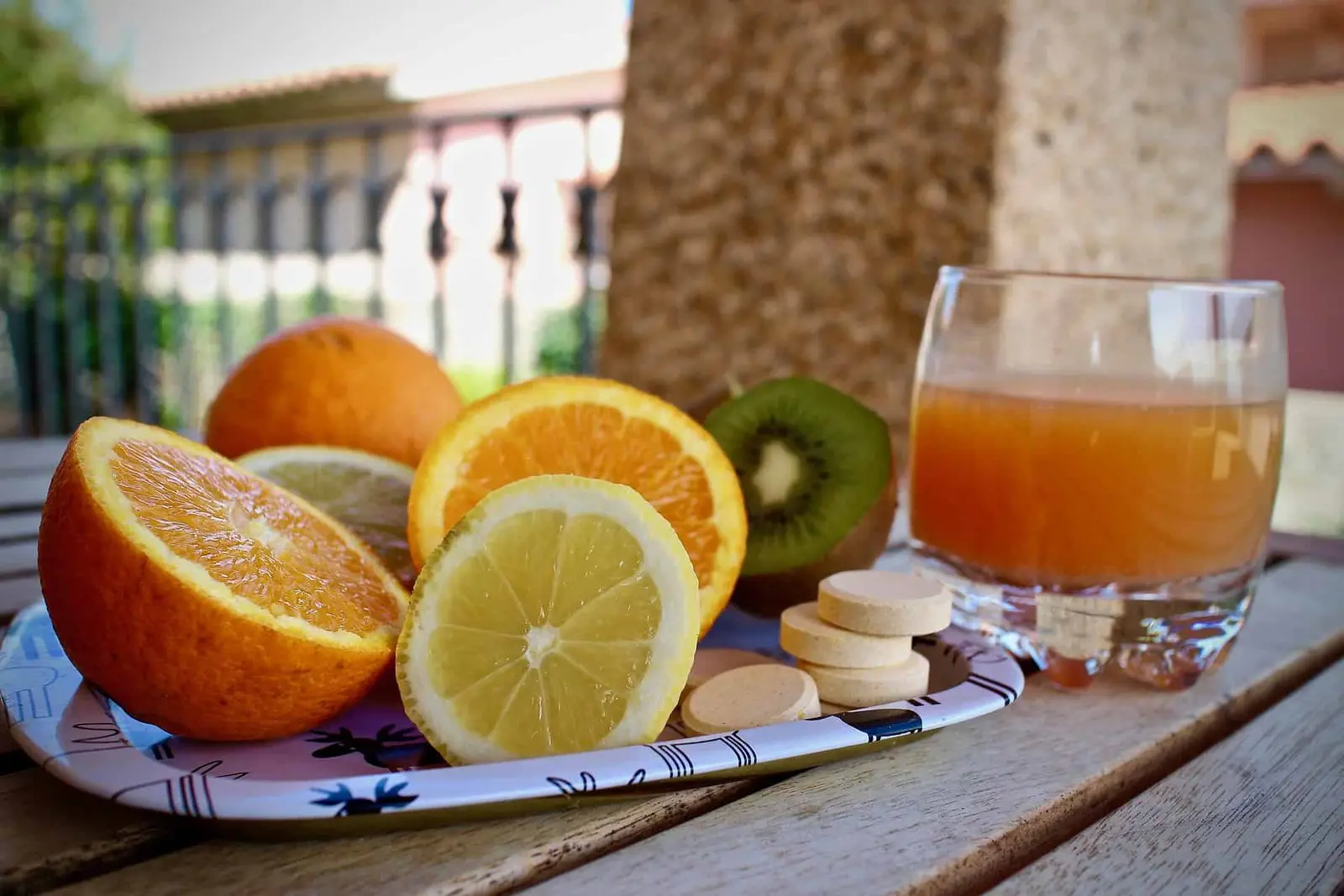
It’s Vitamin C Day! How to boost your immunity & health
Boosting your immunity and health right now is more important than ever. We have all grown up hearing that Vitamin C is good for us. Especially to help fight a cold. How much do we really know about Vitamin C and how it can boost your health?
The History of Vitamin C Day
Vitamin C, also known as ascorbic acid, has several important functions. According to the NHS Website, these include:
- helping to protect cells and keeps them healthy
- maintaining healthy skin, blood vessels, bones and cartilage
- helping with wound healing
Lack of vitamin C can lead to scurvy. Mild deficiencies may occur in people with poor or very restricted diets (further details below). It was not until the late 19th century that scurvy was described in detail by British physician Sir Thomas Barlow, which had killed so many British sailors in the 19th Century. People began to look at just how much Vitamin C can do to improve our health.

Benefits of Vitamin C
Source: Nutrition Almanac by John D. Kirschmann and Nutrition Search. Inc
The adrenal glands use the most Vitamin C, with the brain the next biggest user. Vitamin C plays a leading role in healing and maintaining healthy gums. Another major role is an antioxidant, helping prevent ageing of the body tissues and cancer. Vitamin C helps to fight bacterial infections and acts as an anti-histamine. It also is necessary for the conversion of tryptophan to serotonin regulates sleep, which is the hormone that regulates sleep. Vitamin C promotes the absorption of iron, calcium, and possibly manganese.
Deficiency symptoms
Some of the first signs of a deficiency of Vitamin C are fatigue, weakness and lethargy. Other symptoms include a loss of appetite, swollen legs and arms, depression and shortness of breath. It can also cause problems with bleeding gums. Other symptoms include problems with wounds healing, easy bruising, infrequent infections, dry skin, muscle cramps, loose teeth and cardiovascular disease.
Smoking lowers the levels of Vitamin C in the body. People who drink a lot of alcohol also have low levels of Vitamin C due to the fact that the body uses so much to counteract the toxic effects of alcohol.
Vitamin C sources
Vitamin C is found in a wide variety of fruit and vegetables, not just oranges! Many fruits and vegetables contain enough Vitamin C to keep you healthy, including tomatoes, strawberries, spinach, peppers, and many more.
Good sources of Vitamin C include:
- oranges and orange juice
- red and green peppers
- strawberries
- blackcurrants
- broccoli
- brussels sprouts
- potatoes
- kale
Take advantage of Vitamin C Day to do your body a favour!
How much vitamin C do I need?
Adults aged 19 to 64 need 40-60mg of vitamin C a day. You should be able to get all the vitamin C you need from your daily diet. Vitamin C can’t be stored in the body, so you need it in your diet every day.
See the full government dietary recommendations (PDF, 148kb) for levels for children and older adults.
What happens when you take too much Vitamin C?
Taking large amounts (more than 1,000mg per day) of Vitamin C isn’t good for you and can cause stomach pain, diarrhoea and flatulence
How to celebrate Vitamin C Day
The best way to celebrate Vitamin C Day is to look at your health right now. So many of us neglect our overall health by not looking carefully at our diet and daily intake of vitamins. Look at your diet and the vitamins you intake.
There’s an app for that..
Cronometer
My brother recommended Cronometer which he uses to track his diet and vitamins. Each day you enter what foods you eat and it then reveals to you your daily vitamin and mineral intake, as well as energy and calorie counts.
